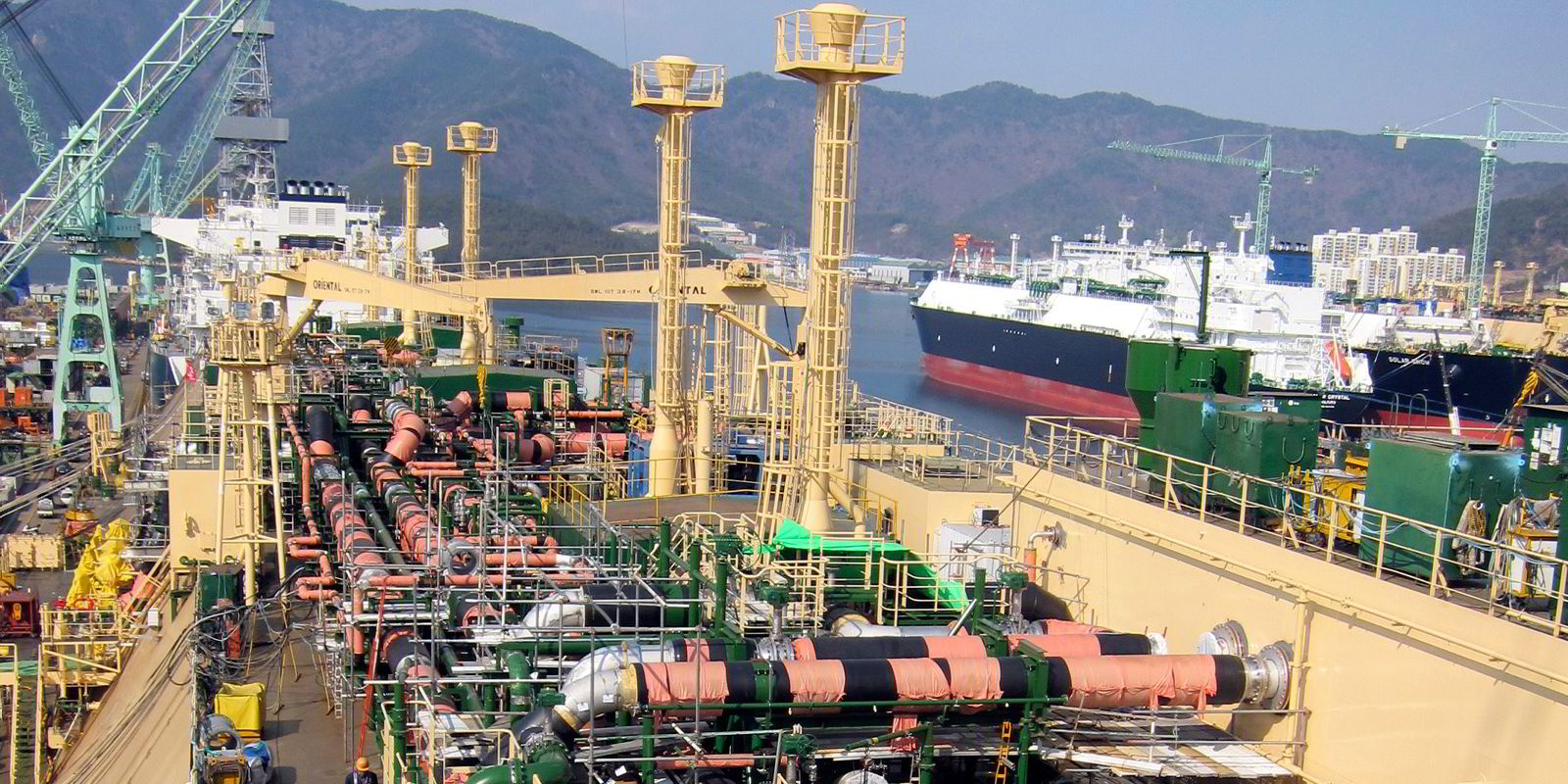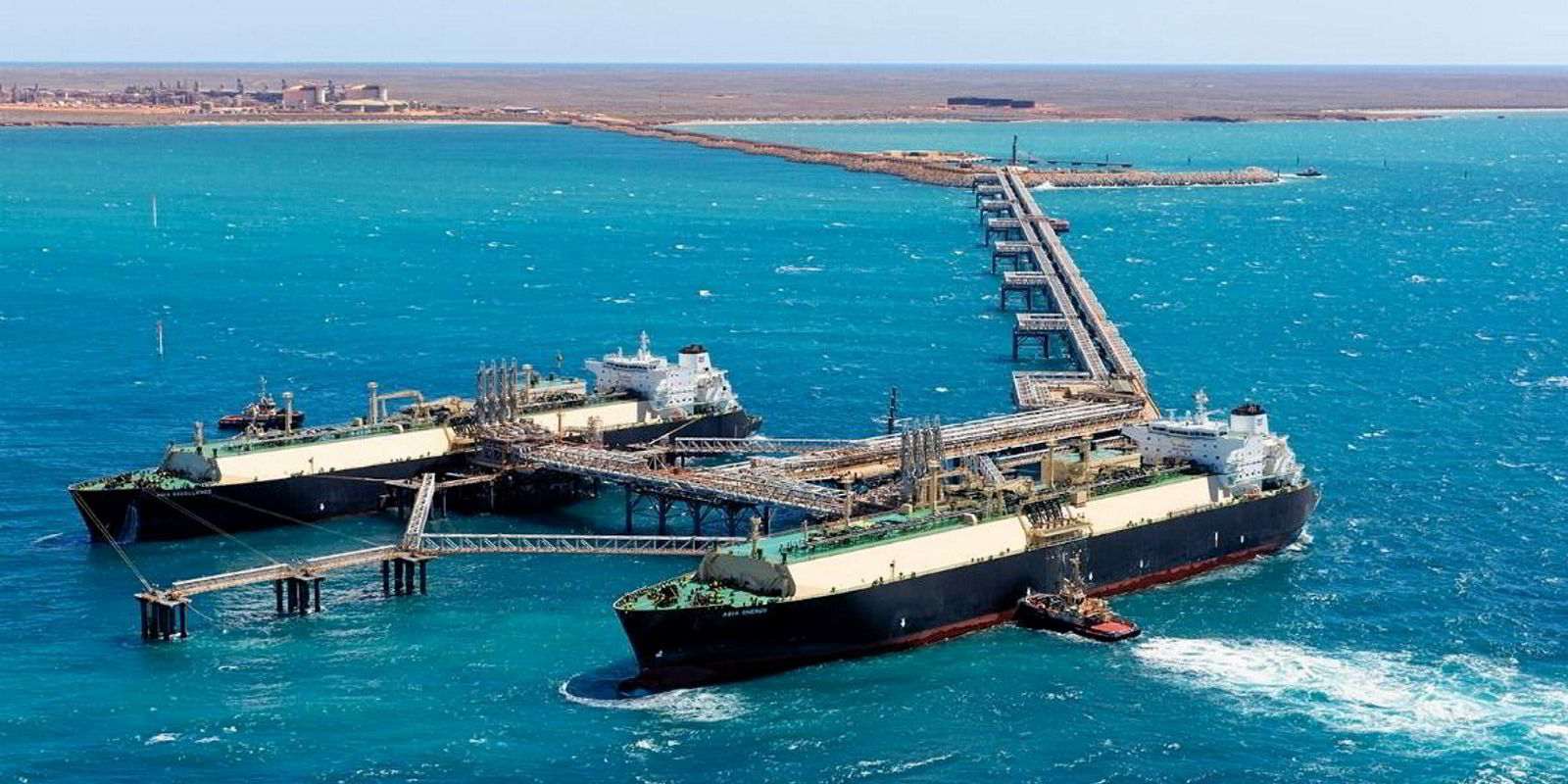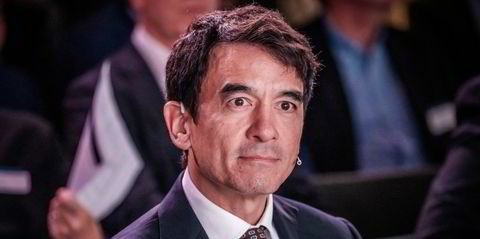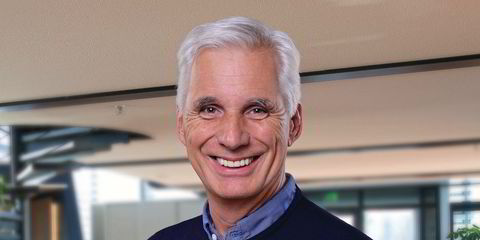US energy major Chevron is retrofitting two of its LNG carriers with reliquefaction systems as it moves to upgrade its fleet and cut emissions.
South Korea’s HD Hyundai Marine Solution Co said it had won an order from Chevron to upgrade the two ships by fitting the reliquefaction kit along with air lubrication systems and new gas compressors.
The addition of the reliquefaction systems enables the vessel to reliquefy its cargo boil-off gas which allows the ship to deliver more cargo and cuts its carbon emissions. They are seen as big-ticket items for vessel upgrades.
The addition of air lubrication systems and upgraded gas compressors are commonly added to help improve vessel efficiencies.
A year ago, Chevron announced it was retrofitting its then six-ship LNG carrier fleet with new technology to cut the carbon emissions from its operations.
On this initial deal, the company said it had booked its ships in with Singapore’s Sembcorp Marine for the work but did not specify how many vessels the yard would handle.
Chevron said at the time that the work would be completed by mid-2025.
The major’s existing LNG fleet comprises six 160,000-cbm tri-fuel diesel-electric Asia-class vessels built by Samsung Heavy Industries between 2014 and 2017.
The company has also been renewing its fleet. In June, Chevron ordered two LNG newbuildings at SHI priced at almost $259m each for delivery by February 2028.
HD Hyundai Marine Solution, which was founded in 2016 as Hyundai Global Service but changed its name in November, said that with this contract from Chevron it has won $100m worth of re-liquefaction system orders since June 2023.
The company said it first won this type of contract from a Norwegian owner, installing reliquefaction systems on five LNG carriers in a deal priced at about $10m per ship.
The HD Hyundai Group company, which is seeking to expand in the vessel retrofitting, repair work, conversions, bunkering and digital solutions business, said it expects orders for these kinds of systems to climb in future with a large number of trading LNG carriers built pre-mid-2010 not installed with this kind of kit.
It estimates that there are about 100 “relatively new” LNG carriers without reliquefaction systems, which are now a standard feature of newbuildings.






